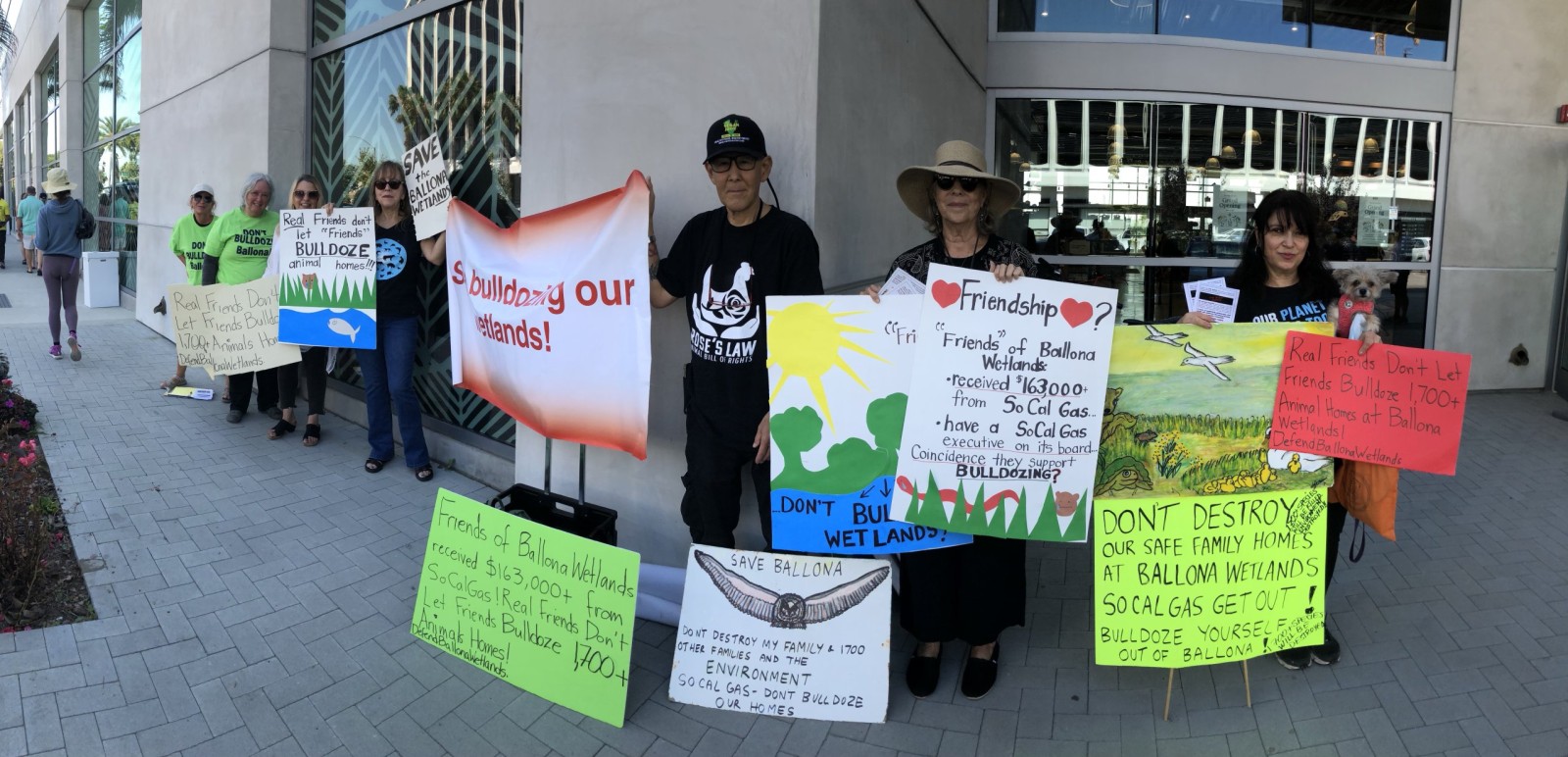The Store’s Nonprofit Partner Supports a Controversial Preservation Project
By Zach Armstrong
REI Co-op is a Seattle retailer that sells apparel meant for outdoor and nature appreciation activities such as hiking and camping. As it celebrated the opening of its latest location, a 23.500 square-foot development adjacent to the Ballona Wetlands Ecological Reserve, environmental activists disrupted the occasion with protest banners, pamphlets and a sound system.
Their conviction: the business must cut ties with one of its nonprofit partners for supporting a bulldozing plan that might’ve ironically flooded out the store’s location if approved.
This was in reference to Friends of Ballona Wetlands, a nonprofit that boasts a mission of helping restore and protect the last major wetland in the Los Angeles Basin that hasn’t been replaced by urban development. The organization has a history of pursuing litigation and coming to agreements with developers, along with undergoing its own proactive projects, to help preserve hundreds of acres of the marsh. According to its website, examples of this include launching a fact-based campaign to educate local residents on restorating the wetland and fostering the state purchase of 600 Ballona acres.
However, the protestors, activists of the Defend Ballona Wetlands organization, accuse the nonprofit as being a “greenwashing” group due to its board members hailing from, and funding sources coming from, major polluters.
Of particular concern is its relationship with SoCalGas, a gas and energy supplier of more than 20 million customers and a methane gas storage facility sitting atop the Ballona wetlands. FBW has received grants from the California utility which Executive Director Scott Culbertson says supports the environmental group’s educational programs. Neil Navin also serves as treasurer of FBW while working simultaneously as vice president, clean energy innovations for SCG.
Both FBW and SCG stood behind the controversial “Ballona Wetlands Restoration Project”, a $250 million bulldozing and restoration project set for the marshes. Details of the plan involve adding several miles of bike and pedestrian walkways along with efforts to repair damaged habitats and making the wetland climate-resilient.
But litigants against the project say the project would actually destroy hundreds of acres of habitat used by endangered species, also contending it is being pushed by SCG to fix its decaying oil-and-gas–facility under the mirage of restoring the reserve.
Culberstson called arguments against the proposed restoration project “nonsense”, describing it as one supported by leading and organizations. According to FBW’s website, the restoration plan is supported by environmentally focused organizations including Heal the Bay, The Trust for Public Land and the Los Angeles League of Preservation Voters. Several academics and scientists were also listed. Culbertson also defended his organization’s ties with SCG given that, since it holds a facility in close proximity to the wetlands, it is important to have an “open dialogue.”
The plan was halted in May by a California Superior Court Judge who ruled in favor of community groups that litigated against the plan, saying in a 67-page ruling that the project should either be abandoned or started anew due to errors in flood risk calculations used in its design.












